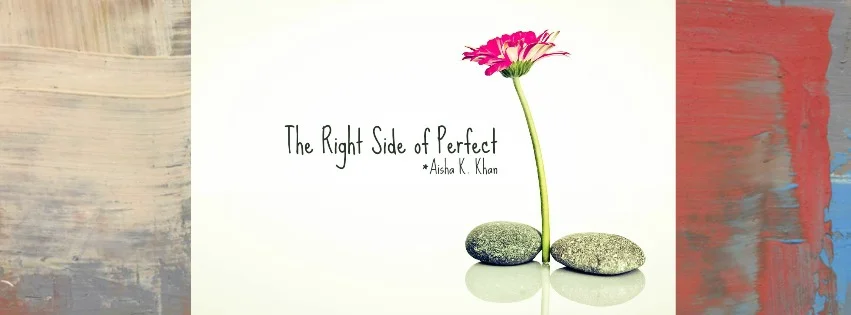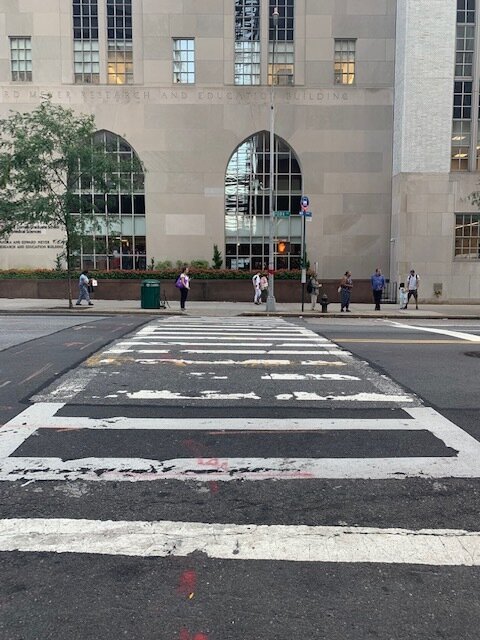Since my surgery I have developed a fear of crossing the street or walking across a crowd of people. Something I had been doing for 30+ years on my own, is now an obstacle which causes me great anxiety. My neurologists have informed me this is common in individuals with movement disorders or those who recover from stroke or stroke like injuries. The thought of others waiting for me to get from Point A to Point B triggers my anxiety and worsens my spasticity, causing me to “get stuck” often in the middle of the street or in the middle of a room. I will watch my paretic side curl in towards the center of my body, making it difficult to step forward, often as if I am walking on my ankle. Botox treatments have been tremendously helpful but that period of time in between treatments can be particularly difficult. There is also no way to predict when the next “episode” will be beyond right before starting to walk.
Image by Pexels from Pixabay
Since moving to New York City, I have been “stuck” in the middle of a crosswalk twice, once with a bus, cab, and car waiting next to the line, patiently, as I dragged my foot quickly so as not to inconvenience others. I have started to rely heavily on Lyft and Uber as I battle this fear and eventually build my confidence.
A few weeks ago, I attended my first Hartford Yard Goats baseball game for the Connecticut Brain Tumor Alliance in Hartford, CT. I quickly discovered upon arrival that here too I would need to cross a street with significant traffic congestion as eager baseball fans rushed to enter the stadium. I felt anxious, sick to my stomach that I would be stuck unable to cross in front of all of these people. At first, I called my friend and Executive Director of the CTBTA, Chris Cusano, to inform him that I would be unable to cross the street and may return home. I felt embarrassed about being afraid of something as simple as getting from one side of the road to the other but I knew the consequences of not being careful. Eventually, I took a chance and approached a gentleman waiting by the crosswalk for the light to pass to walk. He was with his wife and kids and was wearing sunglasses. Awkwardly, I interrupted his thoughts and said, “I’m sorry to bother you, but I need to ask a favor.” I couldn’t see his eyes but I wouldn’t be surprised or upset if he rolled them. I suspected he expected me to ask for money. He said nothing, waiting for me to ask the favor. I quickly followed my intro with, “I’m having some trouble with my right side and wondered if you’d lend me your arm to cross the street?”. After a moment of letting my request sink in he exclaimed, “Absolutley!”He walked over to my side and said, “How do you want to do this?”. I felt relieved and thrilled by his response and positive energy.
A few moments later, I was walking next to a complete stranger, holding his arm while he carried my sweater. It was a slow, patient walk and despite the crosswalk indicating our time was up, the traffic and police officer directing them, waited as the gentleman helped me to the sidewalk. I thanked him and watched this complete stranger join his wife and kids who patiently waited ahead. It’s a simple story and I am thankful its not the first about “random acts of kindness”. There is no special day in my belief for doing these types of favors, but hopefully hearing the kindness of others can inspire someone to do a favor for another person today. I’ve also learned that no matter how grand and difficult the obstacles we overcome, life will continually challenge and humble us. I have overcome brain tumor surgery, paralysis, learned to walk and drive again, but at this moment its the little icon of a person or the word WALK that blinks from the other side of the street that challenges me most to be better and stronger. Sometimes fear wins, sometimes I do.
York Avenue and 69th Street Interesection by @WeillCornellMedicine- Graduate School of Medical Sciences
To end on a positive note, after a month of avoiding them, I finally crossed a busy NYC street again.
Here’s to progress and random acts of kindness.



